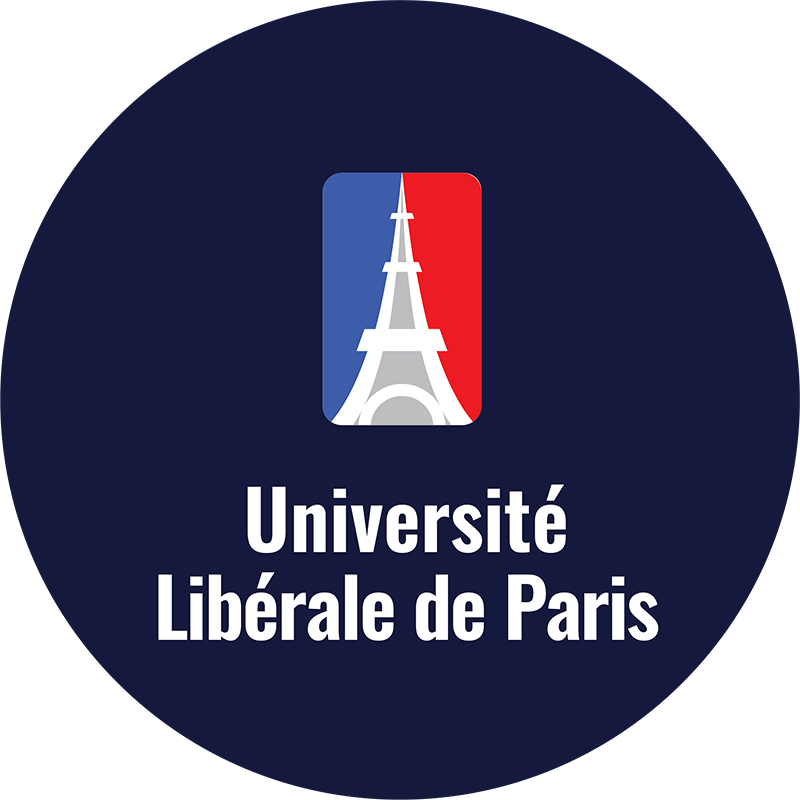
Micro Doctor’s Degree in Strategic Human Resource Management
Micro Doctor's Degree in Strategic Human Resource Management
CÔNG NHẬN NĂNG LỰC LEVEL 8 THEO KHUNG NĂNG LỰC CHÂU ÂU EQF
Mục đích của chương trình học này nhằm phát triển hiểu biết của học viên về cách thức quản lý hiệu quả chiến lược nguồn nhân lực, hỗ trợ việc đạt được các mục tiêu của tổ chức trong các bối cảnh khác nhau. Học viên sẽ đánh giá tầm quan trọng của việc đóng góp quản lý nguồn nhân lực chiến lược, và việc áp dụng lý thuyết lãnh đạo và quản lý vì lợi ích của tổ chức.
Level 8 EQF tương đương với cấp độ Tiến sĩ và có thể chuyển 20 tín chỉ và toàn bộ học phí sang các chương trình Tiến sĩ của Paris-U.
Chương trình chi tiết
Leaning Outcomes:
1. Understand the role of management of human resources.
- 1.1 Critically justify the importance of human resource management in organisations.
- 1.2 Assess the role and purpose of the strategic human resource management function and activities in an organisation.
- 1.3 Evaluate how human resource management is related to other functional areas.
2. Be able to create a human resource plan for an organisation.
- 2.1 Assess the business factors to consider before human resource planning.
- 2.2 Determine human resource requirements in different organisational contexts.
- 2.3 Develop a human resource plan for an organisation.
3. Understand the role of legal and ethical issues in developing
- 3.1 Explain the purpose of human resource policy.
- 3.2 Assess the impact of regulatory and legal requirements on human resource policies in an organisation.
- 3.3 Assess the impact of business ethics, CSR, and sustainability requirements on human resource policies for an organisation.
4. Be able to plan develop human resource strategies.
- 4.1 Critically analyse the impact of an organisational strategy, structure and culture on the management of human resources.
- 4.2 Develop a structured, relevant and comprehensive HR strategy.
- 4.3 Critically monitor the effectiveness of human resources management.
5. Understand HRM approaches within organisations and their relationships with the organisational performance
- 5.1 Critically evaluate the relationships between business strategy and human resource management.
- 5.2 Explain the implementation and measurement of HR approaches using relevant metrics.
- 5.3 Monitor and evaluate a human resource strategy that supports organisational mission, vision, values and objectives.
Critical explanation of the nature and importance of human resource management in organisations
- Definition; features of HRM approach; HRM models: D Guest, M Patterson, best practice model, contingency model, Harvard Framework; personnel management and HRM; activities of HRM.
Assessing the role and purposes: Strategy
- HRM strategy; organisational strategy; HRM strategy benefits for organisations; interrelationships between HRM and organisational strategies; organisational performance and HRM strategy; HRM strategy influence on organisational strategy; organisational strategy influence on HRM strategy; value creation; human capital management; HRM strategy business focus; effective HRM.
Evaluating contributions of human resource management
- Evaluation of human resource management contribution e.g. characteristics, importance, techniques; the changing patterns of effective human resource management; the effect of globalisation; the use of IT.
Analysing the business factors
- Growth in business; changes in business; labour market competition; labour cost substitution; development of employee; control of labour cost; operations location; work nature changing; productivity increase; efficiency increase; technological impact; competition in business; declination of business.
Determining human resource requirements:
- Personnel prerequisites identification: experiences, skills, qualifications, numbers; personnel matching to organisational prerequisites; basic prerequisite factors: skills, demand and supply of labour, workforce; external factors: policies of governments, education, employment, regional or industrial training; competitions in labour market.
Developing a human resource plan
- Human resource planning e.g. features and requirements; functionalities e.g. selection and recruitment, retention, skill development, up skilling, re-skilling, succession planning; outputs; resource demand; success factors; planning length e.g. short, medium and long; costs and benefits of business; Empowerment and talent management.
Explaining the purpose of human resource policy
- Policy purposes; selection and recruitment; diversity and equality; development and training; expenses and benefits; discipline; performance improvement; rewards; pay; health and safety; discipline; information confidentiality; working time; paternity or maternity leave; harassment or bullying; management of change; grievance and dismissal; intellectual property: copyrights, patents; protected disclosure/whistle blowing; alcohol, drugs or smoking.
Analysing the impact of regulatory and legal requirements on human resource policies in an organisation
- Legislation of employment; rights and responsibilities of employment; payment related regulatory and legal rights; data protection, conditions and contract terms.
Analysing the impact of ethical requirements on human resource policies in an organisation.
- Ethics in human resource management e.g. discrimination, harassment, racism, gender preference, nepotism, favouritism; employee satisfaction; compliance and grievance.
Analysing the impact of an organisational strategy, structure and culture on the management of human resources.
- Culture and structure; culture led theoretical models: Schein, Hofstede, Handy; culture of organisation; interrelationships between HRM activities and culture.
Proposing the effective appropriate HR strategy:
- The requirement for effective human resource strategies; SMART objective target settings (specific, measurable, achievable, realistic, time-based).
Critically monitor effectiveness of human resources management and provide recommendations
- Importance of monitoring effective human resource management; policies, strategies, operations; HRM contributions; benefits; costs; use of resources; effectiveness; ineffectiveness; information collection on HRM performance; performance indicator development; evaluation of HRM performance indicators; quantitative measurement: person output, productivity, retention of employee, turnover of staff, cost saving; qualitative measurement: stakeholder perspectives, employee attitude surveys, HRM performance benchmarking, service level standards and agreements of HRM; costs and benefits utility analysis; HRM improvement proposals and activities.
Discuss relationship of people development and HRM
- Planning for people development and human resource management; functionalities: employment, development, retention, skill enhancement, planning of succession; HR resourcing; success criteria; planning of milestones: short, medium or long term; cases study of businesses: benefits, costs, SMART (specific, measurable, achievable, realistic, time- based) target settings.
Explain organisational theory underpinning HRM:
- Organisational structure theories: Handy, Mintzberg, Weber; HRM impacts and structure forms: product based, functional, divisional, geographical; matrix: centralisation, decentralisation.
Discuss the interrelationship of employee relations/HRM practices and the management of change:
- Employee relations e.g. concept, features and application; best fit practices; absence; discipline and grievance; consultation and communication; employee engagement; psychological contract; flexible working hours.
Developing the HRM process, recruitment and selections.
- The requirement of human resources; personnel requirement identification e.g. number, experiences, qualifications, set skills; human resource match to organisational demands; factors of human resource development, recruitment and selection e.g. person profile, requirement of labour, requirement of skills; external factors of recruitment and selection; demand of labour; labour supply; national level policies as related to human resource e.g. education, empl9oyment, training, regional, industrial; competition in labour market.
Developing employee motivational and appraisal strategies
- Employee motivation e.g. features, importance and practices; career progression; rewards; bonus and pay rise; promotion; emotional support; job satisfaction.
Critically analysing role and employee retentions in organisations:
- Employee retention e.g. importance and trends; employee turnover; competitive remuneration benefits; stay interview; employee development.
Explore and discuss purpose of leadership in different kinds of organisations:
- Leadership e.g. definition, features, characteristics, types, purposes of leadership; direct and indirect leadership; features of managers or leaders; leadership skills; followership; 10 managerial roles of Mintzberg.
Evaluate leadership practices in an organisational context:
- Styles of management and leadership: persuasive; autocratic; charismatic; participative; laissez faire; management and leadership influence on an organisation; style impact on strategic decisions; situation led adaptation of management and leadership styles.
Creating a human resource strategy that supports organisational mission, vision, values and objectives: strategic leadership
- Development; leadership requirement for organisational aspects e.g. mission, vision and objectives; strategic development; organisational strategy formulation.
Monitoring and evaluating the human resource strategy:
- Monitoring and evaluation e.g. general features, criteria; organisational mission, vision, values and objectives monitoring; monitoring and evaluating strategy formulation.
Indicative reading list
Core texts:
- Rees, G. and Smith, P. E. (2017) Strategic Human Resource Management: An international perspective. Sage Publications
Additional reading:
- Avery, G. (2004) Understanding Leadership. London: Sage
- Bradley, F. (2005) International Marketing Strategy. New Jersey, FL: Prentice Hall.
- Bratton, J., Grint, K. and Nelson, D. L. (2005) Organizational Leadership. New York: Thomson South Western. • Brooks, I. (2009) Organisational Behaviour: Individuals, Groups, and Organisations. Harlow: FT Prentice Hall.
- Buchanan, D. and Huczynski, A. (2007) Organisational Behaviour. Harlow: FT Prentice Hall
- Colquitt J, LePine, J. and Wesson, M. (2010) Organizational Behaviour. Boston: McGraw-Hill.
- Daft, R. (2006) The Leadership Experience. New York: Thomson South Western.
- Du Brin, A. J. (2007) Leadership: Research Findings, Practice and Skills. Boston: Houghton Mifflin.
- Gill, R. (2006) Theory and Practice of Leadership. London: Sage.
- Gold. J., Thorpe, R. and Mumford, A. (2010) Leadership and Management Development, 5th Edition. CIPD • Kouzes, J. M. and Posner, B. Z. (2008) The Leadership Challenge. 4th Edition. New York: Jossey-Bass. London: CIPD. • Mabey, C. and Finch-Lees, T. (2008) Management and Leadership Development. London: Sage.
- Martin, J. (2005) Organisational Behaviour and Management. London: Thomson Learning. Mullins, L. J. (2010) Management and Organisational Behaviour. 9th Edition. Harlow: Financial Times
- Northouse, P. G. (2007) Leadership Theory and Practice. London: Sage
- Northouse, P. G. (2009) Introduction to Leadership, Concepts and Practice. London: Sage
- Robbins, S. and Judge, T. (2009) Organizational Behaviour. New Jersey: Person Prentice Hall
- Storey, J. (2004) Leadership in Organisations; Current Issues and Key Trends. London: Rutledge. Times/Prentice Hall.
Tiêu chuẩn đầu vào
Để đăng kí tham gia chương trình học học, học viên cần đạt 1 trong những điều kiện sau:
- Đã có bằng Thạc sĩ các chuyên ngành từ các đại học được kiểm định hoặc bằng cấp Level 7 theo hệ thống EQF hoặc tương đương.
- Với ứng viên có bằng đại học nội địa chưa có kiểm định quốc tế sẽ phải dựa vào chính sách chương trình APEL.Q của Université Libérale de Paris (Paris-U) để tuyển sinh.
- Trên 24 tuổi
Lưu ý: Université Libérale de Paris (Paris-U) bảo lưu quyền quyết định tiếp nhận hay không tiếp nhận sau khi bộ phận tuyển sinh đã xem xét kỹ lưỡng hồ sơ của từng ứng viên để đảm bảo ứng viên có thể đạt được nhiều lợi ích và kiến thức khi tham gia chương trình. Paris-U không chấp nhận bằng cấp đầu vào từ các trường đại học giả mạo và các trường đại học thuộc nhóm Diploma Mills.
Yêu cầu tiếng Anh
Ứng viên không đến từ những quốc gia sử dụng tiếng Anh là ngôn ngữ chính phải cung cấp chứng chỉ về trình độ tiếng Anh.
- Tiếng Anh đạt tối thiểu khung năng lực CEFR (Common European Framework of Reference) ở mức B2 hoặc tương đương.
- TOEFL tối thiểu 101 điểm hoặc IELTS 6.5; Nói và viết phải đạt từ 6.5 hoặc tương đương.
Sau khi tốt nghiệp, học viên nhận được:
- Bằng Micro Doctor’s Degree in Strategic Human Resource Management từ Université Libérale de Paris bản điện tử.
- Bằng Micro Doctor’s Degree in Strategic Human Resource Management từ Université Libérale de Paris bản cứng chuyển về nhà.
- Giấy công nhận Accreditation of Prior Experimental Learning for Qualification (APELQ) từ Paris-U với số tín chỉ và học phí có thể tích luỹ.
- Xác nhận chuyên gia Level 8 Certified in Strategic Human Resource Management từ Paris-U
Vì chương trình được kiểm định và công nhận nên học viên có thể dễ dàng sử dụng chứng chỉ trong các môi trường làm việc và có nhiều cơ hội thăng tiến trong sự nghiệp. Trong trường hợp muốn học lấy bằng đại học, học viên có thể chuyển đổi toàn bộ tín chỉ và toàn bộ học phí khi tham gia chương trình tại Paris-U.
Université Libérale de Paris’s Level 8 Certified means:
Micro Doctor’s Degree đặt cấp độ Level 8 của Khung Năng lực Châu Âu EQF và tương đương với:
- Level 8 certificate of Regulated Qualification Framework (RQF) of UK
- Level 11 certificate of Scottish Credit and Qualifications Framework (SCQF)
- Level 8 certificate of Credit and Qualifications Framework (CQFW)
- Level 8 certificate of European Qualifications Framework (EQF)
- Level 10 certificates of the Australian Qualifications Framework (AQF)
- Level 8 certificate of ASEAN Qualifications Reference Framework (AQRF)
- Level 10 certificate of the African Continental Qualifications Framework (ACQF)
Học viên có thể chuyển tất cả tín chỉ và toàn bộ học phí đã đóng khi chuyển tiếp sang các chương trình của Paris-U nếu muốn lấy bằng đại học chính thức.
Số tín chỉ có thể tích luỹ:
Học viên được tích luỹ được 20 credits khi tham gia chương trình Doctor of Business Administration (DBA) hoặc Ph.D của Paris-U. Vui lòng tham khảo thêm về chính sách tích luỹ tín chỉ TẠI ĐÂY.
Chuyển học phí đã đóng:
Khi tham gia chương trình DBA/PhD, toàn bộ phí đã đóng cho chương trình Micro Degree sẽ được giảm tương ứng. Thông tin chi tiết vui lòng xem TẠI ĐÂY.
APEL.Q – Accreditation of Prior Experiential Learning for Qualifications là quy trình công nhận năng lực (APEL) để cấp bằng (Q- Qualification) thông qua việc thẩm định và đánh giá quá trình học tập (chính thức, không chính thức, đào tạo tại doanh nghiệp) và từ kinh nghiệm làm việc. APEL.Q được triển khai rộng rãi tại Châu Âu và gần đây, tại Châu Á, một số nước đã công nhận APEL.Q như quy trình chính thức, được công nhận cấp quốc gia và được ưu tiên phát triển như một chính sách hiệu quả phục vụ cho giáo dục khai phóng, dịch chuyển lao động và học tập suốt đời.
APEL.Q cho phép các cá nhân có chuyên môn nghiệp vụ, có kinh nghiệm làm việc nhưng không có bằng cấp (academic degree) có thể chuyển đổi kinh nghiệm để lấy bằng. APEL.Q được đánh giá là quy trình chặt chẽ, minh bạch, công bằng, chính xác và tiết kiệm.
Với các chương trình đào tạo truyền thống, việc cấp bằng sẽ dựa vào năng lực có được từ chương trình đào tạo. APEL.Q áp dụng quy trình ngược so với đào tạo truyền thống, dùng chính năng lực theo từng vị trí (position) và cấp độ (level) do chính phủ công bố để đánh giá, từ đó công nhận và cấp văn bằng. Văn bằng sẽ được cấp từ các tổ chức nghề nghiệp và/hoặc trường đại học nếu tổ chức nghề nghiệp và/hoặc trường đại học đó công nhận quy trình đánh giá.
APEL.Q của Viện hàn lâm khoa học London là chương trình triển khai độc lập đầu tiên trên thế giới với các tiêu chí đánh giá năng lực được công bố và công nhận của chính phủ Anh Quốc và Đại học Khai phóng Paris – Université Libérale de Paris (Paris-U). Xem thêm TẠI ĐÂY
- Chọn chương trình phù hợp theo nhu cầu của bạn. Để đảm bảo lợi ích và thuận lợi tối đa, hãy xem trước chương trình mà sau này có thể chuyển tín chỉ và học phí.
- Email nguyện Vọng học tập về địa chỉ support@paris-u.fr.
- Paris-U sẽ gửi bạn thông tin chi tiết chương trình, bạn tiến hành theo quy trình được hướng dẫn.
- Université Libérale de Paris xuất Letter of Acceptant (LOA). Bạn tiến hành các bước đăng ký theo hướng dẫn và đóng học phí.
- Université Libérale de Paris sẽ gửi đến bạn tài khoản đăng nhập vào hệ thống e-learning và các tài liệu hướng dẫn đi kèm.
- Bạn lúc này là sinh viên chính thức của Paris-U với chương trình Micro Degree.
Micro Degree là chương trình triển khai theo mô hình trực tuyến. Bạn có thể học mọi lúc mọi nơi. Bài kiểm tra cuối khoá được upload lên hệ thống làm căn cứ để quyết định tốt nghiệp. Trong trường hợp học viên không nộp bài đúng hạn sẽ xem như rớt môn và bị huỷ bỏ tư cách sinh viên và các quyền lợi đi kèm. Chương trình Micro-Degree không áp dụng chính sách Resit.
- Chương trình Micro-Degree bên cạnh do Paris-U triển khai trực tiếp, thì những chương trình không phải do Paris-U triển khai chỉ chấp nhận chuyển tín chỉ khi đã được Paris-U công nhận bằng văn bản.
- Để có thể chuyển được tín chỉ và học phí, học viên phải gửi toàn bộ tài liệu nhận được sau khi tốt nghiệp chương trình Micro Degree. Paris-U sẽ không tiếp nhận việc chuyển điểm và học phí nếu ứng viên không cung cấp đầy đủ.
- Học viên chỉ được chuyển đổi tín chỉ và chuyển học phí với chương trình tương ứng, bao gồm tương ứng về cấp độ (Level) và tương ứng về chuyên ngành.
- Chương trình chuyển đổi tín chỉ và học phí chỉ áp dụng trong thời hạn 2 năm kể từ ngày tốt nghiệp Micro-Degree. Sau thời gian này, Micro-Degree đã học sẽ không còn hiệu lực chuyển đổi tín chỉ và học phí.
- Việc chuyển đổi tín chỉ giúp giảm bớt số tín chỉ cần phải hoàn thành không đồng nghĩa với rút ngắn tổng thời gian của chương trình. Học viên tốt nghiệp cùng với những học viên thông thường khác.


Học phí
Học phí chương trình Micro Degree của Paris-U đã được trợ phí và có thể thay đổi mà không báo trước.
Université Libérale de Paris
The Université Libérale de Paris (Paris-U) là Đại học Khai phóng được kiểm định và công nhận quốc tế. Vui lòng liên hệ để Paris-U cung cấp cho bạn thông tin chi tiết về văn bằng, công nhận và quy trình chuyển đổi tín chỉ, chuyển học phí của Micro Degree.
Université Libérale de Paris
1 rue de Stockholm 75008 Paris, France
Phone: +33758491227
Email: support@paris-u.fr
Một Đại học của the European Education Holdings
Wertachstrasse 21 • 86153 Augsburg
Phone: +15908605264 • Email: support@education.holdings
Về Paris-U
Programs
Thành viên Paris-U
Hệ thống Paris-U
Chính sách Paris-U
Chính sách và Điều khoản

